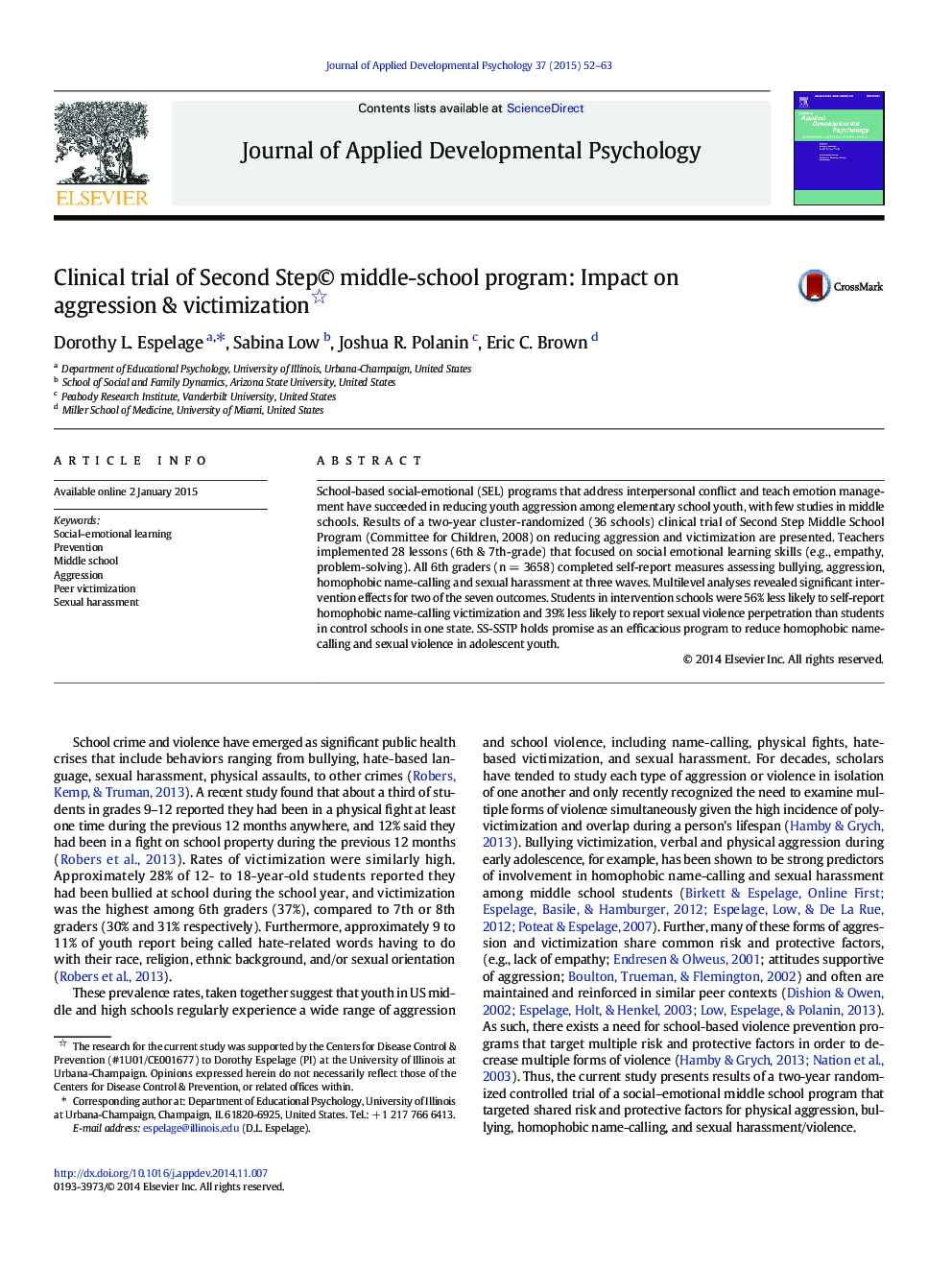| کد مقاله | کد نشریه | سال انتشار | مقاله انگلیسی | نسخه تمام متن |
|---|---|---|---|---|
| 359660 | 620265 | 2015 | 12 صفحه PDF | دانلود رایگان |
• Social-emotional learning middle school program reduced probability of being called homophobic epithets.
• Social-emotional learning middle school program reduced homophobic name-calling and sexual harassment perpetration.
• Effects for SEL program were found for only Illinois, not Kansas schools.
• Implementation of the SEL program differed in Illinois and Kansas.
School-based social-emotional (SEL) programs that address interpersonal conflict and teach emotion management have succeeded in reducing youth aggression among elementary school youth, with few studies in middle schools. Results of a two-year cluster-randomized (36 schools) clinical trial of Second Step Middle School Program (Committee for Children, 2008) on reducing aggression and victimization are presented. Teachers implemented 28 lessons (6th & 7th-grade) that focused on social emotional learning skills (e.g., empathy, problem-solving). All 6th graders (n = 3658) completed self-report measures assessing bullying, aggression, homophobic name-calling and sexual harassment at three waves. Multilevel analyses revealed significant intervention effects for two of the seven outcomes. Students in intervention schools were 56% less likely to self-report homophobic name-calling victimization and 39% less likely to report sexual violence perpetration than students in control schools in one state. SS-SSTP holds promise as an efficacious program to reduce homophobic name-calling and sexual violence in adolescent youth.
Journal: Journal of Applied Developmental Psychology - Volume 37, March–April 2015, Pages 52–63
